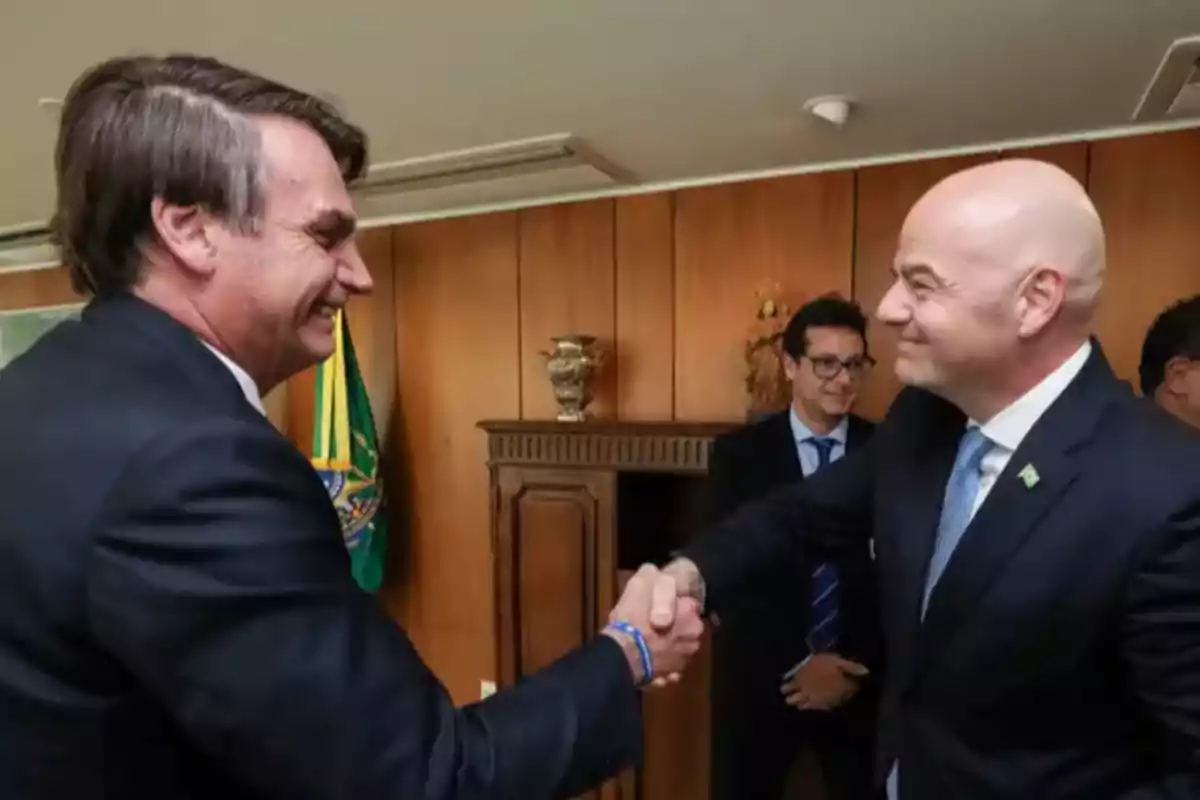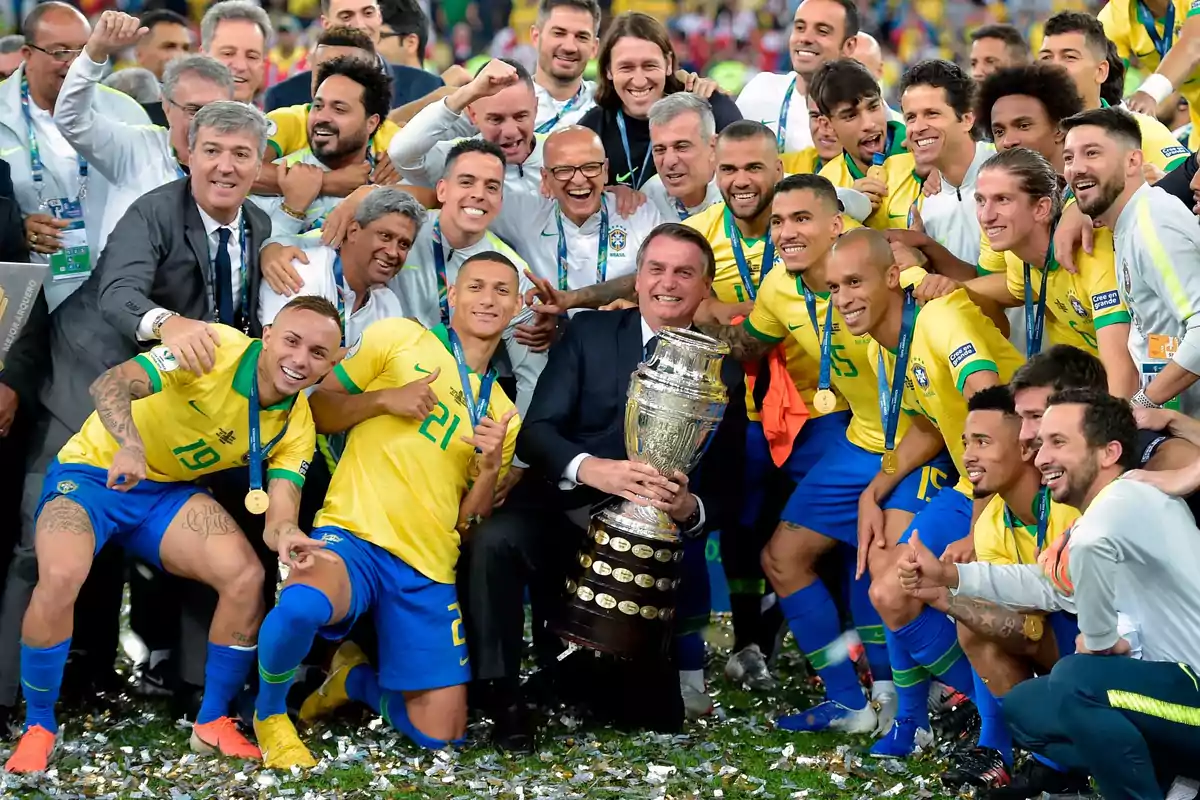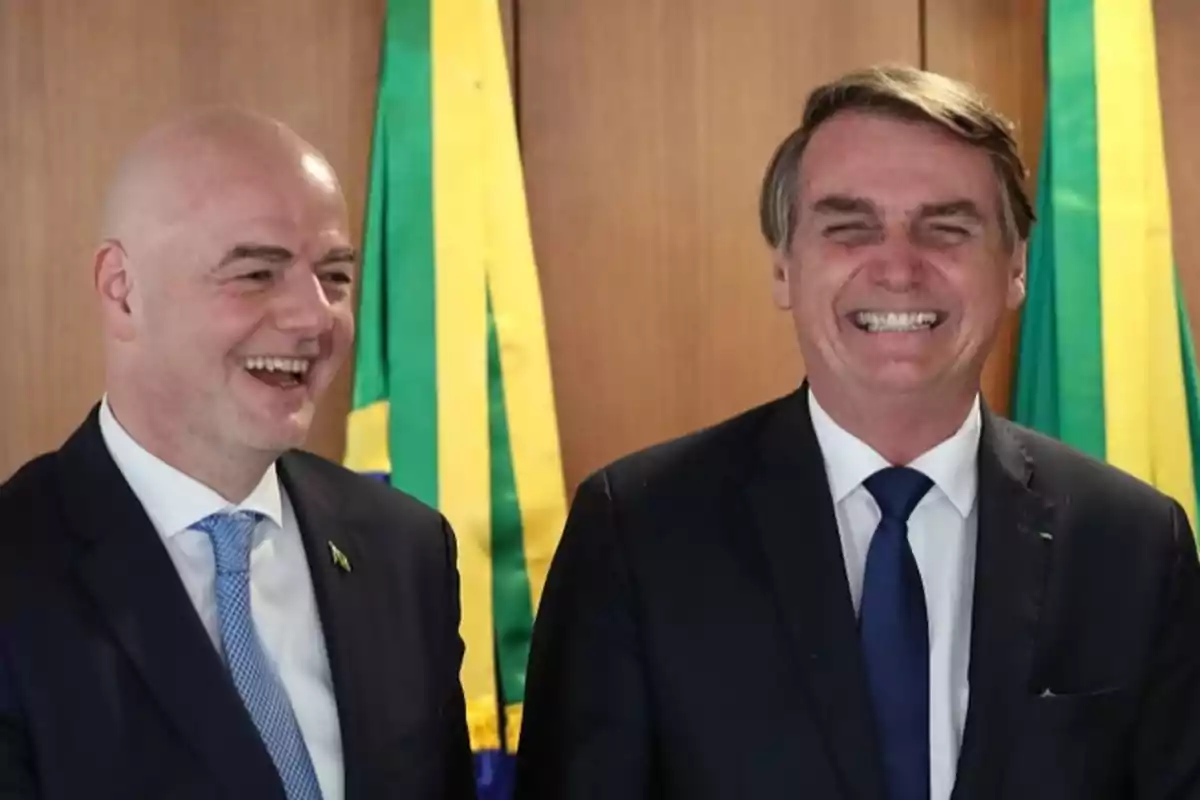
Bolsonaro's successful reforms that boosted Brazilian football
The reforms granted autonomy to the clubs and modernized sports management, paving the way for private investments
While Argentine football faces numerous problems under the poor management of Claudio "Chiqui" Tapia, Brazil benefits from a modern and efficient model that gives its clubs true prominence.
Under the administration of former president Jair Bolsonaro, the neighboring country undertook a series of successful reforms between 2020 and 2021, which caused positive results that can be seen to this day.
These changes modified everything from broadcasting rights to the legal framework of the clubs, with a business-oriented, professional vision focused on attracting private investment.

This successful model could serve as an example for a football-loving Argentina that, although rich in talent, seems doomed to lose its place in the elite due to a lack of political will or ideological whims of those who run football.
Bolsonaro's successful reforms
The changes made by the former Brazilian president were several. The most emblematic was the so-called "Lei do Mandante," enacted after the signing of Provisional Measure 984. This regulation changed the rules of the game in broadcasting rights: the home club gained the exclusive right to negotiate the broadcast of its matches, without the need to reach an agreement with the visiting team.
This measure, promoted by clubs like Flamengo, broke the monopoly of traditional networks like Globo and opened the door to competition with new digital platforms such as YouTube or Amazon. For the first time, Brazilian clubs began to have real control over their product, which led to greater financial autonomy and new sources of income.

In addition, the law established that 5% of audiovisual rights revenue be allocated directly to the players, recognizing their central role in the spectacle. This fairer distribution not only promotes the professionalization of the sport, but also incentivizes performance.
On the contractual front, Bolsonaro introduced greater flexibility for the clubs, reducing the minimum contract term from 90 to 30 days. This measure allowed smaller clubs with limited resources to adapt their squads without falling into financial crises, something especially useful during the COVID-19 pandemic.
Perhaps the most structural and transformative reform was the creation of the Sociedade Anônima do Futebol (SAF), a new legal framework that allows clubs to become for-profit companies, attract private investors, issue shares, and establish professional management models. With this law, Brazil decided to open football to private capital with clear rules and legal protection, a step that Argentine football still refuses to take.

The case of Cruzeiro is paradigmatic, as it was a club in debt and on the brink of collapse, but was rescued after its conversion to SAF, with Ronaldo Nazário as main investor. Today, the club is one of the most important in Brazilian football.
Meanwhile, Jair Bolsonaro also made it clear that modernizing football did not mean rewarding financial irresponsibility. In January 2021, he vetoed key articles of a bill that sought to suspend clubs' debt payments to the State, known as the Profut program, and to prevent sanctions against executives for falsifying financial statements or poor financial management.
This way, Brazil's reforms represented a bet on modern football, which is already bearing fruit. If Argentina doesn't take note, it risks falling behind not only compared to Europe, but also to the thriving Brazilian football.
The current Club World Cup is the perfect example. While all Brazilian clubs present in the competition qualified, the Argentine clubs, River and Boca, ended up being eliminated in the group stage.
More posts: